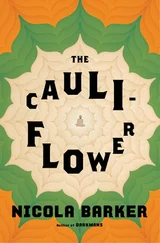Anne Marie didn’t ever like to think bad things about him, she felt that such thoughts were a kind of disloyalty, so she baked and cleaned and made as if to be a model housewife, which she was.
In many ways she led a successful life. Sundays were her days. Steve always said, ‘Anne Marie, Sundays are your days, I’ll read the paper. Would you mind making me a coffee before you start dinner?’ Little Fiona stood on a chair at the sink and pretended to help with the washing up.
Steve’s mother liked coming to their house on a Sunday because it saved her the effort of cooking. She was always on a diet, so cooking was a trial. She picked at her food. Steve always said that you could tell what sort of person someone was by the way that they ate. Of course, he’d always had a healthy appetite.
Anne Marie thought that she should enjoy baking so she tried to pretend to herself that she did. During the week she pretended to look forward to Sunday. She pretended to enjoy the planning that she assiduously put into play every Saturday morning at Asda over the meat counter and when choosing what kind of potato was best.
In fact she hated it. She hated the hot kitchen and the fiddly preparation, the peeling and primping. She hated cooking. But there was another baby on the way (of course she wanted it), another mouth to feed. She didn’t want to be disloyal.
The food had begun to express her. Since the new baby had been conceived — he had been drunk, she had been drunk but purposeful — the food had begun to develop its expressive faculties to the full, especially on a Sunday when it seemed to revel in its significance. Peas and potatoes, steaks and salads all had something to say, something piquant and niggly. But dinner tasted good just the same.
Little Fiona noticed first. One week she said, ‘Mummy, this lemon meringue pie seems to be angry. It tastes very bitter and the frosty bit is too sugary and full of air.’
Grandad blew smoke rings at her and said that she was a smart girl. He said, ‘The whole point of this kind of dish is its contrasts; sweet and sour, creaminess and fluffiness. In many ways this pie is like a fine woman.’
Little Fiona stared at him with beguiling eyes and said, ‘No, it’s not just like anybody, it’s like Mummy. That’s what I’m saying. It’s like her.’
Anne Marie asked if anyone fancied Brie with biscuits and before the plates had been taken away the entire incident was forgotten.
But from then on every dish was like a person or an emotion. One week the meal was like Steve’s mother. Her meal was a dish of ribs. They were lean but juicy and the sauce was menopausal. Another week the meal was like Steve. They had pheasant and the meat was dark and rich. It was too much. The vegetables were in riot against the game, they hung about in clusters and moved contemptuously around the plate. Anne Marie had made a strong gravy to swamp the meal’s strength. It disguised almost everything.
Sometimes her meals expressed people that they didn’t even know. When the Minister for Social Security didn’t increase Child Benefit, Anne Marie produced an incredible risotto that expressed him to perfection. When Brookside was going through an especially engaging period, when the story was particularly exciting and realistic, she produced a series of meals that expressed the programme’s leading characters and their dilemmas. Barry Grant was encapsulated in a daring toad-in-the-hole. ‘Not a proper Sunday meal,’ Steve said, ‘but enjoyable just the same.’
Since little Fiona’s first comments on the subject, Anne Marie had become increasingly aware of her random compulsion to produce food with feeling. Her meals were like feelings; sweet, sharp, painful, joyous, confused, jumbled. Her tarts were like tears, her swiss rolls just didn’t understand.
Anne Marie thought it all through. She was now five months pregnant. She thought it through and decided that maybe the meals were to do with the baby. Maybe the meals were the baby’s introduction to the emotions. She felt like the baby knew everything about everyone and everything about everything. Inside her the baby felt smug. But she was none the wiser herself. When she cooked on a Sunday she felt a pulling from deep inside her stomach, it was as though the baby’s movements were hunger pains. It was like the baby was saying, ‘Make me real, make a meal that is me, then I will become a proper person. Give me feelings and a soul.’ But every time Anne Marie tried to bake something that expressed the baby she made something or someone else. One week she came close. She thought she’d done it when she baked some coconut cookies but when little Fiona saw them she shouted, ‘Look Mummy, it’s me! They smell so young and nice.’
Steve said that the coconut got stuck in his teeth. He picked at it. He found it irritating.
Anne Marie worried for her new baby. She wondered what she should do for it. Steve was complaining of indigestion all the time. He moaned. She thought, ‘God, he never says what he really feels, he never truly expresses himself to me.’
But she couldn’t gauge her own feelings either. She could only bake and cook. She hated doing it. She thought, ‘Feelings are such dirty and confusing things. I wish I understood them.’ Something big had to happen. Something more.
When Anne Marie was eight months pregnant with a huge stomach and swollen ankles something big finally did happen. Over the past weeks she had baked Cilla Black, her milkman, Roger Scruton, the Famous Mr Ed, Sarah Bernhardt, Michael Aspel and the girl on the cold meats counter in Tesco’s. The larger she grew the more Steve complained about how he missed her wage. Every Sunday afternoon in front of the television when his parents had finally gone home he’d say, ‘Of course I’m glad about the baby, it’s just that we miss your money in the kitty. I’m not made of money myself and times are hard.’ On these occasions the baby’s tiny hands punched and pulled inside her. She felt as though everything was disguised, as though she didn’t have the power to see anything as it really was.
The following Sunday she started baking especially early. She started to make a cake, a big three-layered coffee-and-walnut gâteau. She had never made a gâteau before so it was something of a random operation. No single recipe seemed adequate so she combined three different ones. The cake was a real original. As she cooked, the baby pulled inside her and she thought, ‘Maybe this is it. Maybe this cake is going to be the baby.’ This thought excited her because the cake was so rich and special and extravagant.
Steve came into the kitchen for a moment as she prepared the cake and moaned that the ingredients were too lavish. He said, ‘What’s wrong with a plain madeira or a Victoria sponge?’ Anne Marie couldn’t explain what was wrong with them. She was unable to articulate.
The gâteau took three hours and thirty-five minutes to complete. It was incredible. When she had finished it Anne Marie felt totally fulfilled and serene. Unfortunately she only had enough time left to make a perfunctory meal of chops and salad for Sunday dinner. Steve grimaced when it was served. His mum said something about it being good for her diet. The meal didn’t express anything. The food was just food and it went down easily. Little Fiona looked vaguely disappointed as the plates were cleared away, but her face lit up when her mum brought forth the gâteau with a nervous show of self-conscious ceremony. She brought it out as if to say, ‘This is my new child, please don’t find fault with him.’
Everyone stared at the gâteau. Its chocolate and coffee decorations glimmered. Anne Marie took a knife to it with the slightest of winces as she cut out four large slices. They began to eat. She couldn’t bear to touch it herself even though the baby stormed inside her like a tiny hurricane.
Читать дальше
Конец ознакомительного отрывка
Купить книгу












